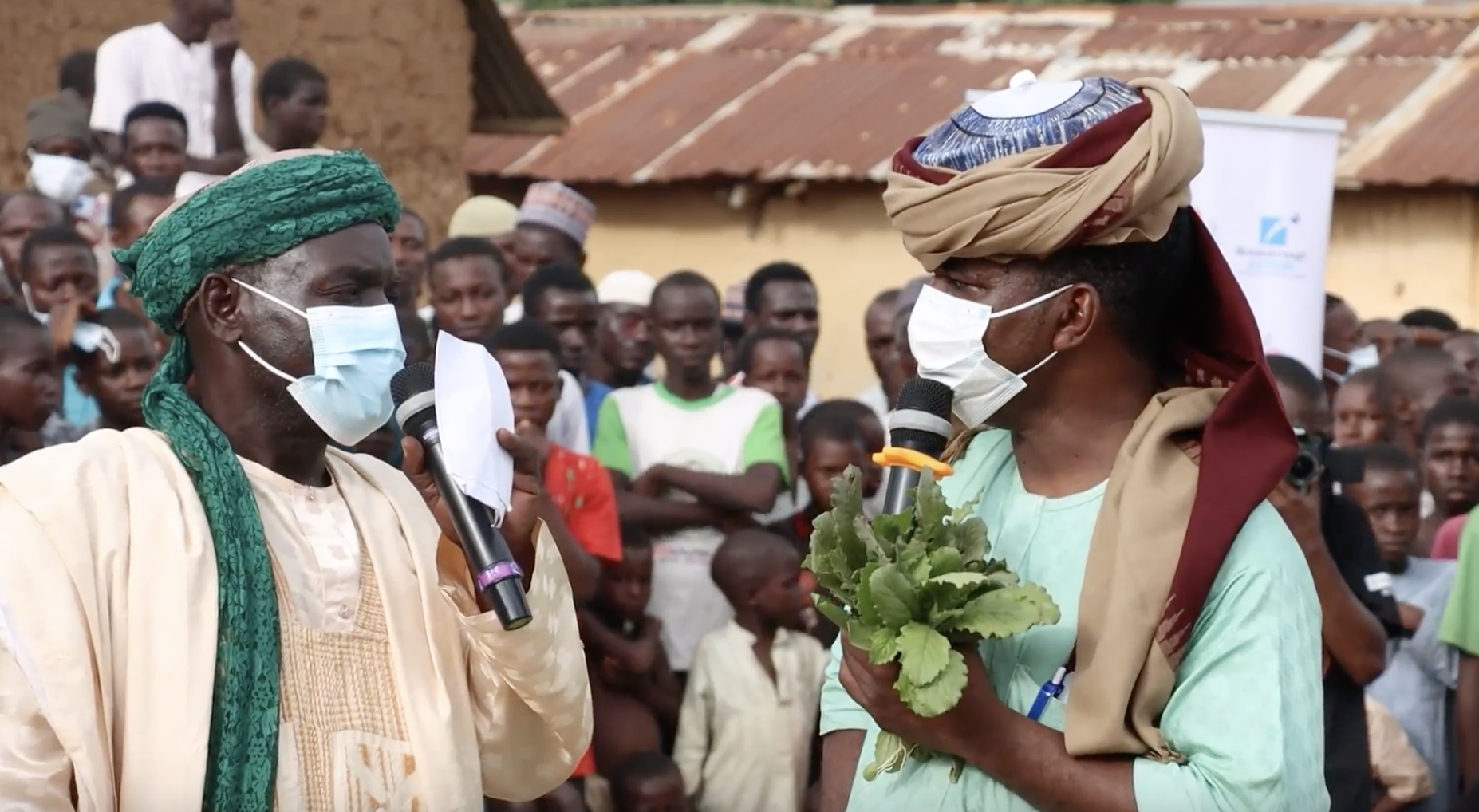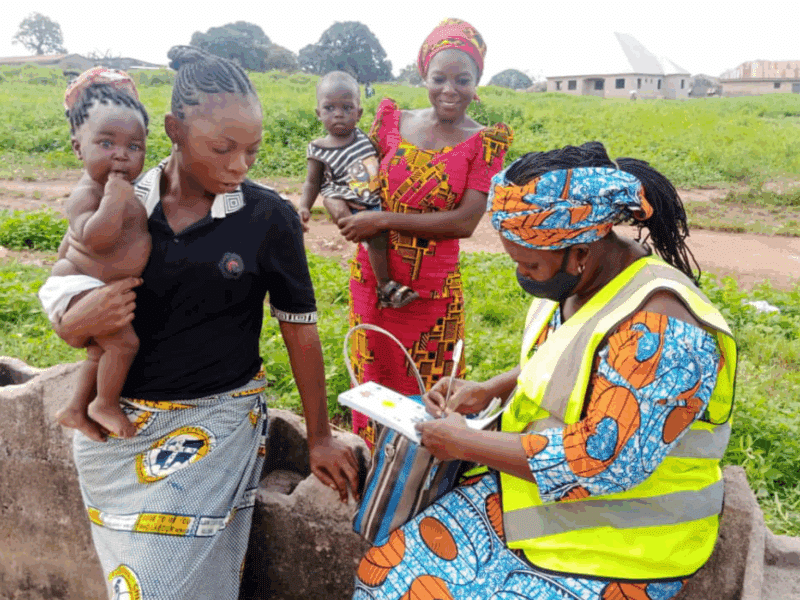As part of a shift in yellow fever outbreak management from response to prevention, the Johns Hopkins Center for Communication Programs-led Breakthrough ACTION-Nigeria project is using the stage to help spread the word and save lives.
Already performed in four wards in Nigeria’s Bauchi State, a community drama titled In Kunne Yaji…Jiki ya Tsira (“Take Heed Lest You Suffer”) builds awareness of yellow fever – promoting the signs and symptoms, rumor management, prevention, and treatment – while at the same time working with and developing participant skills, community spirit and artistic sensibilities. The goal is to entertain and educate at the same time.
“Using community drama to share key messages has a greater likelihood of change than just using one-on-one contact,” said Usman Inuwa, Breakthrough ACTION-Nigeria’s Bauchi State coordinator. “Together the community learned about yellow fever. There was no barrier because everyone was there: young, old, children, women, men, husbands, youth, traditional and religious leaders, and grannies. This is a powerful and promising strategy.”
So far, nearly 750 people have seen the drama, a number CCP hopes will increase. The drama is the product of a collaboration between community members and locally renowned drama troupe, Yanke Yanke, created with the support of Breakthrough ACTION and USAID’s Global Health Security Agenda.
It is one approach to helping communities better understand a life-threatening disease scenario that confronts them daily. “The community drama approach takes advantage of entertainment to make the messages compelling and personal, while also providing audience members a chance to follow up with specific questions they might have,” says Susan Krenn, CCP’s former executive director. “Using community theater in this way has a long history in Nigeria as a really effective strategy to get critical information to all members of the community who are at risk.”

In Nigeria, communities have been struck by repeated yellow fever outbreaks since 2017. Thus far, a total of 1,518 suspected cases have been reported in 2021.
Despite the availability of vaccines against this deadly mosquito-borne illness, the WHO and UNICEF estimated that the national immunization coverage for yellow fever was 54 percent in 2020, far below the 80 percent necessary to protect against outbreaks.
Yellow fever is an acute viral hemorrhagic fever transmitted to humans by the bite of an infected mosquito. The mosquitoes that cause yellow fever usually bite in the mornings and afternoons, when people are on the farms and in the markets. Symptoms of yellow fever include fever, headache, jaundice, muscle pain, nausea, vomiting and fatigue, according to the World Health Organization. A small proportion of patients who contract the virus develop severe symptoms and approximately half of those die within seven to 10 days.
Early symptoms could be confused with malaria, so prompt reporting of fever is key to recovery. There is currently no specific treatment for yellow fever, but good and early supportive treatment in a health facility is vital to reduce the risk of death.
Those who saw the performances learned about the signs and symptoms of yellow fever, that it is spread by mosquitoes, prevention tips, the need to promptly test every fever before treatment and that home remedies do not cure it.
In one storyline, a young man has been sick for days with aches and fever. His mother wants to take him to the hospital, but his father runs off to get some herbs he thinks will do the trick instead. When the father returns, his wife has already gone to the hospital and gotten their son a diagnosis of yellow fever. Angered, the man threatens divorce, but a local leader comes by to tell him to listen to his wife and the doctors. “Go to the pharmacy and get his drugs now,” the leader orders. “Dispose of these herbs immediately.”
Following the performances, the Breakthrough ACTION-Nigeria team asked audience members to recall some of the lessons learned and many could successfully recite them.
There are plans to perform the drama in other parts of Nigeria, because the outbreaks are not confined to Bauchi State.
“We need to share these lessons in as many ways as we can since behavior change doesn’t happen overnight,” Inuwa says. “Efforts and collaborations must continue in order to contain these outbreaks.





